Uncategorized
-
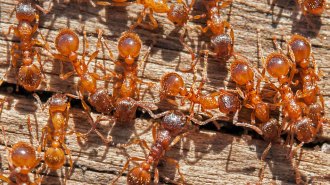 Life
LifeEuropean fire ant chemicals may send spiders scurrying away
Black widows and some other common spider species avoid spaces where fire ants once roamed, suggesting the insects could inspire a spider repellent.
-
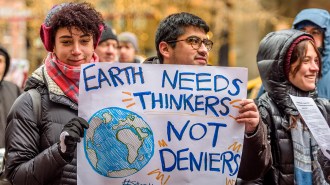 Climate
ClimateClimate change disinformation is evolving. So are efforts to fight back
Researchers discuss effective ways to counter the changing tactics of climate denial.
-
 Health & Medicine
Health & MedicineCleaning indoor air may prevent COVID-19’s spread. But it’s harder than it looks
The size and setup of a room and how the room is used make finding simple ventilation and filtration solutions difficult.
-
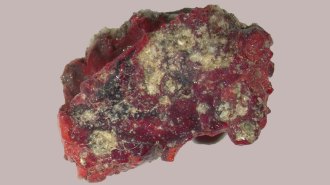 Physics
PhysicsA newfound quasicrystal formed in the first atomic bomb test
Material formed in the wake of the first atomic bomb test contains a strange material that is ordered but that is not a standard crystal.
-
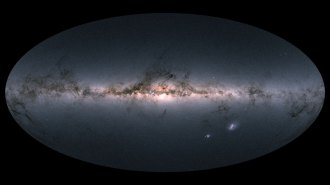 Astronomy
AstronomyThe Milky Way may have grown up faster than astronomers suspected
Most of the galaxy’s disk was in place before a merger 10 billion years ago with a dwarf galaxy called Gaia-Enceladus/Sausage, a new study suggests.
-
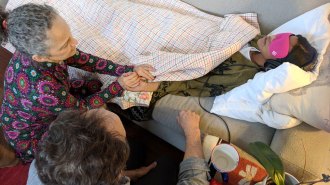 Health & Medicine
Health & MedicineMDMA, the key ingredient in Ecstasy, eases symptoms of severe PTSD
By the end of the trial, 67 percent of the participants who took MDMA had improved so much that they no longer qualified as having a PTSD diagnosis.
-
 Animals
AnimalsThe U.S.’s first open-air genetically modified mosquitoes have taken flight
After a decade of argument, Oxitec pits genetically modified mosquitoes against Florida’s spreaders of dengue and Zika.
By Susan Milius -
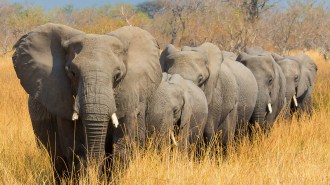 Animals
AnimalsElephants are dying in droves in Botswana. Scientists don’t know why
Some type of pathogen may be behind the recent deaths of 39 elephants, a new wave that follows 350 deaths last summer.
-
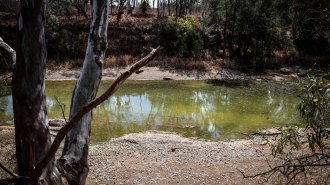 Climate
ClimateRivers might not be as resilient to drought as once thought
Seven years after Australia’s Millennium drought, water flow in many rivers isn’t returning to predrought levels.
-
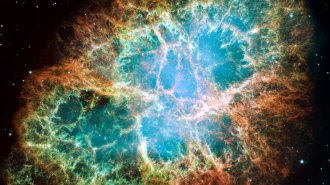 Astronomy
AstronomyA study of Earth’s crust hints that supernovas aren’t gold mines
Supernovas aren’t the main source of gold, silver and other heavy elements, a study of deep-sea crust suggests.
-
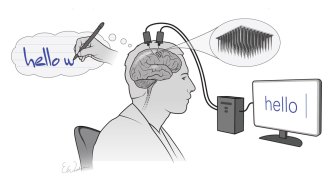 Neuroscience
NeuroscienceBrain implants turn imagined handwriting into text on a screen
A person who was paralyzed from the neck down was able to communicate, thanks to brain-to-text technology.
-
 Psychology
PsychologySmall bribes may help people build healthy handwashing habits
Getting people to wash their hands is notoriously difficult. Doling out nice soap dispensers and rewards helps people develop the habit.
By Sujata Gupta